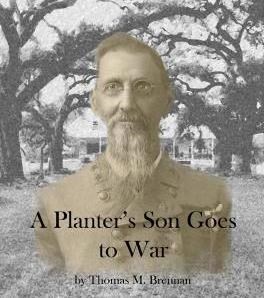
NPS A Planter’s Son Goes to War, written by park volunteer Thom Brennan, is a brief biography of Jacques Alphonse Prud'homme, focusing on his war time experiences. Grandson of Oakland Plantation founder Emmanuel Prud'homme, Alphonse survived the war and went on to inherit Oakland Plantation in 1865 upon the death of his father. Alphonse owned Oakland Plantation through the turbulent years of Reconstruction into the early 20th century. 
The fascinating story of William Smith, the son of enslaved Oakland Plantation blacksmith Solomon Williams. During the Civil War, Smith escaped from plantation slavery and enlisted in the United States Army. At war’s end, Smith migrated to New Orleans, where he was one of the first to enlist in the 9th U.S. Cavalry, part of the famed Buffalo Soldiers. He served with the cavalry in west Texas during the tumultuous years of Reconstruction. After completing his military service, William Smith married and started a family. They were living in Galveston when it was struck by the worst hurricane in American history. Smith survived, and spent his final years in the delightful seaside town of Monterey, California. A Blacksmith's Son Goes to War was written by park volunteer Thom Brennan. For his efforts Thom received the 2016 National Park Service Southeast Region Hartzog Volunteer Award. 
NPS/Martin Pate 
NPS A testament to their perseverance, descendants of both plantations continue to reside near both park units and often use its resources. Descendants of enslaved Africans, sharecroppers, tenant farmers, day laborers, overseers, plantation owners, Tribes, Creoles of Cane River and traditional cultural practitioners remain. The park proactively developed an ethnographic project to learn about historic practices and traditional knowledge in order to better manage park cultural resources. The project team interviewed over 40 Traditionally Associated People from Oakland and Magnolia, digitized previously unreleased interviews, and produced the following five Section 508-compliant documentary films. Oral History and Ethnographic Interviews with Traditionally Associated People of Cane River Creole NHP. Documentary Films: 2018 "Planters, Sharecroppers, Tenant Farmers, and Day Laborers at the End of the Plantation Era" "Cane River Plantations and Farms in the 21st Century" "Family and Community Life" "Museum Collections Management" "Foodways and Traditional Cuisine" |
Last updated: December 22, 2023
